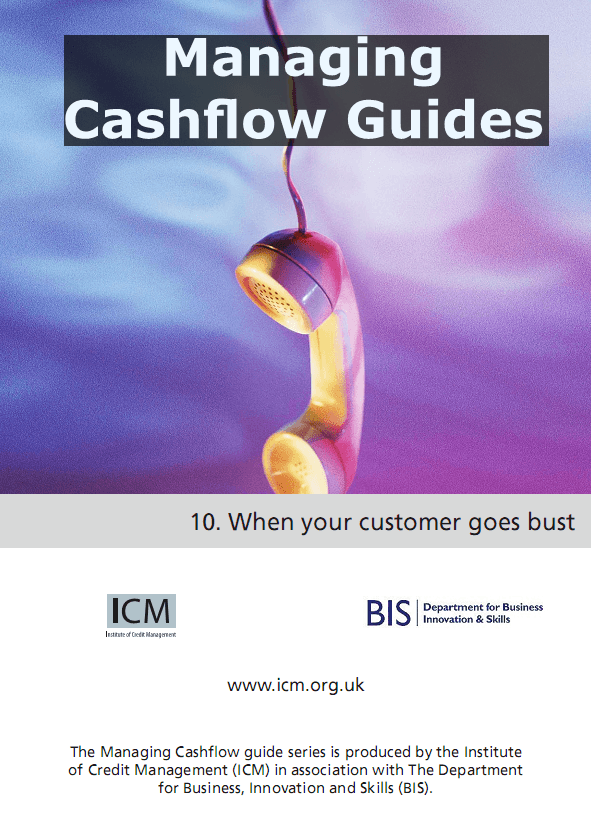Sometimes, businesses fail. If a failed company is a customer of yours it can be an expensive and potentially disastrous situation.
In most cases their will be little you can do, except wait and see if any money is left for creditors when the affairs of the company are formally finalised.
Once most formal insolvency procedures have begun, you are generally excluded from taking any further action to recover what is owed.
In the final part of the Managing Cashflow guides from the CICM & BIS they deal exclusively with just this issue. Providing a simple and concise explanation of the different types of insolvency in the UK.
The guide can be downloaded using the link below:
Our MD Sid Home explains:
“Corporate insolvency rates have risen in recent years and with the current economic uncertainty in the Eurozone and elsewhere in the world this trend shows no sign of reversing.
In the first instance, are you sure that the customer is telling the truth? It is not unknown for unscrupulous debtors to claim a company is insolvent when they have yet to enter formal insolvency. Before you give up chasing monies owed you need to be 100% certain that the company has indeed gone bust.
You need to identify the precise type of insolvency procedures the company is entering into and if possible confirm this is the case with an independent third party such as the liquidator or administrator.”
The Managing Cashflow series of guides is produced by the Institute of Credit Management in association with the Department for Business Innovation and Skills. The full series of guides can be found on our blog here.
Over 150 Years Of Industry Experience
Our modest but highly skilled team has a combined total of over 150 years of experience in commercial credit management and B2B debt collection. From independent IT contractors to major film and TV publishers, Safe Collections has the knowledge and experience you need to get paid quickly and cost effectively.

